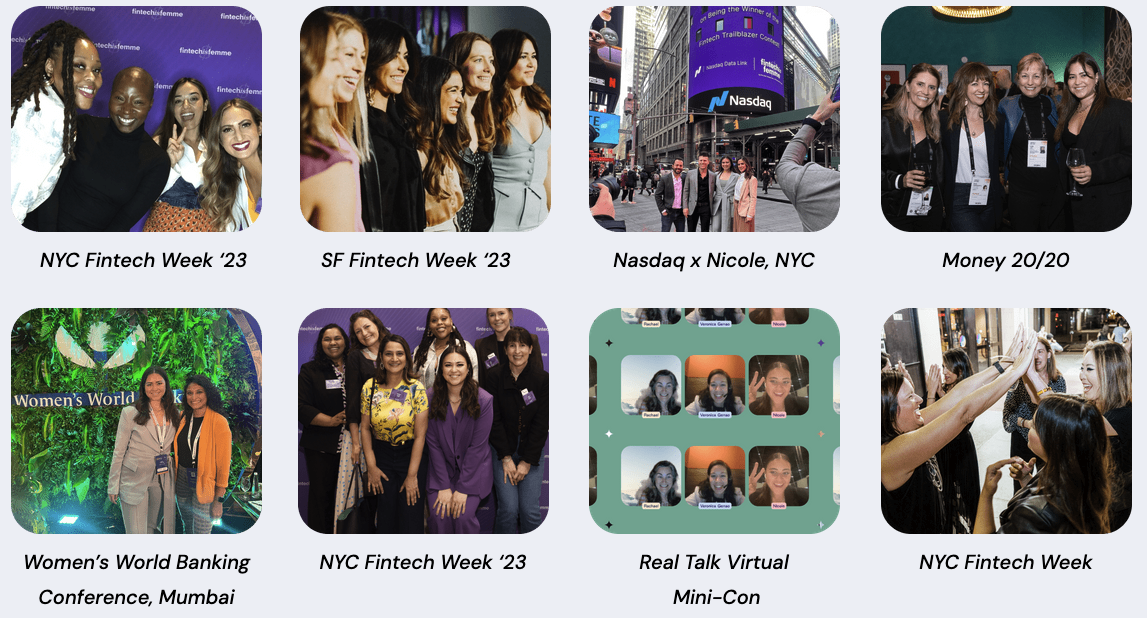10 August 2023 | FinTech
What’s Up In Fintech
By
#1 How Changing Market Conditions Influence Fintech
This week the founder and CEO of Silverbird, Max Faldin, wrote in Forbes about the impact of the Federal Reserve’s average inflation targeting approach on the fintech industry. He explains the connection between interest rates and inflation and how higher interest rates can lead to a shift from transaction-centric to balance-centric business models for fintech companies. He also highlights the potential profitability of neobanks through higher interest rates.
But the real gem? Faldin’s final note: Fintech must prioritize branding and stability due to customer concerns and funding. No more “if you build it, they will come,” vibes. I echoed this during my Empire Startups fintech week masterclass in April.
Why it matters: Transparency rules as customers make financial choices, pressing fintech to provide clear information about their products and services. Secondly, increased competition for VC cash means that fintech companies will need to be more grounded in reality in their business plans and strategies to attract investors.
#2 Venture Capital For Everyone
On Tuesday, Sweater announced the launch of Public VC Funds, allowing qualified partners to establish their own VC funds and invite both their communities and the general public to join, irrespective of their accreditation status.
Traditionally, VC was exclusive to the wealthy. Sweater is working to disrupt this, aiming for a more inclusive VC community. Founder and CEO Jesse Randall highlighted Sweater’s power in empowering fintech platforms, universities, and even Hollywood figures to extend fund invites to a wider audience. Accessibility is key here – anyone can invest without limits. Qualified partners contribute audience, deals, and insights, while Sweater handles tech and compliance.
Why it matters: Sweater’s launch of Public VC Funds challenges the exclusivity of traditional venture capital and ushers in a new era of inclusivity, breaking down the barriers that have long hindered everyday investors from entering this realm. The platform’s vision aligns with modern financial inclusiveness, giving individuals and communities a seat at the table previously reserved for the elite.
#3 Fintech For The SMBs
Jean Smart, CEO of Penelope, and Sofiat Abdulrazaaq, CEO of Goodfynd have joined forces to create a more equitable ecosystem for small business owners. (They’re also Humans of Fintech guests, check out Jean’s episode here and Sofiat’s episode here).
As two female first-generation American entrepreneurs, They understand the struggle for affordable, accessible tech and financial resources that cater to underserved needs. Penelope addresses retirement gaps for over 5 million U.S. micro businesses without plans, combating a system plagued by fees and complexity. Goodfynd boasts over 95% microbusiness users, with 78% identifying as BIPOC or immigrants.
This collaboration offers SMBs holistic solutions, from growth and resource management to retirement planning. Entrepreneurs gain cost-effective plans, HR support, and expertise spanning financial services.
Why it matters: Penelope and Goodfynd’s alliance addresses vital gaps in micro business support and retirement access. By combining their strengths, they uplift underserved entrepreneurs, amplifying diverse voices and enabling financial growth – sparking a positive ripple effect in the SMB landscape. We love to see collaboration over competition.
MARK YOUR CALENDARS
Tune in every Thursday to keep in the loop on the best fintech events happening each week! Whether it’s an online meetup or a fintech conference, these gatherings provide amazing opportunities to network, learn and connect with our incredible fintech community. So, let’s fill up those calendars with all the awesome events out there – I’d love to see you at one, or even better, if you have one you’d like to share,please let me know!

MONDAY 8/14[Virtual] Live Chat w/ Dr. Daniel Crosby: The one and only, Daniel Crosby and I sat down earlier this week to discuss the power of behavioral finance in fintech. Start your Monday off by catching a replay in case you missed it here.
TUESDAY 8/15 – WEDNESDAY 8/16[Virtual/IRL] ETHWomen Hackathon: If you’re crypto curious, this is the signal you’ve been waiting for to get involved. ETHWomen is a female-focused and inclusive online and in-person event series part of ETHToronto and Blockchain Futurist Conference.
THURSDAY 8/17[NYC] Fintech Fundraising: Elevate your fundraising game and navigate the complexities of the current market. Hosted by my friends at Forum Ventures, Anthemis, and Rise. Will I see you there?

FRIDAY 8/18[LA] Summer Stroll: Kick off Friday by walkin’ and talkin’ with members of the Fintech is Femme community. RSVP for details.
Hosted by Alexandra Raymond
SATURDAY 8/19[NYC] Beach Day: There’s nothing quite like a summer in New York City. This Saturday, I’ll be catching as many rays as I can at Rockaway Beach. I’ll be joined by some of my closest friends and if you’re up for it, we’d love to have you join us! Come to the beach and let us help you soak up some of that vitamin D. Respond to this email and I’ll send you the details.

SUNDAY 8/20[NYC] Sunday Brunch: Brooklyn, sun, mimosas, and incredible company. Those are my weekend afternoon plans. This brunch is exclusively for members of the Real Talk community. Make your membership official before Sunday because I’d love to send you an invite for brunch!
HUMANS OF FINTECH
Emily Luk, Plenty Co-Founder & CEO

How much money do you need to have a child? What, exactly, should your finances look like before you consider buying a house? How much should you save for a wedding? You shouldn’t have to pay $1000 or more to find out the answers to these questions from a financial planner— and Emily Luk, CEO and Co-Founder of Plenty, has designed the first platform designed with couples’ finances in mind. In my conversation with Emily, we chat about the current state of wealth management for couples and how, with over 65% of millennial couples partnering up, it’s more relevant than ever before. Emily explains her journey to developing Plenty and what she hopes will be the start of greater access to wealth management planning for demographics of all kinds.